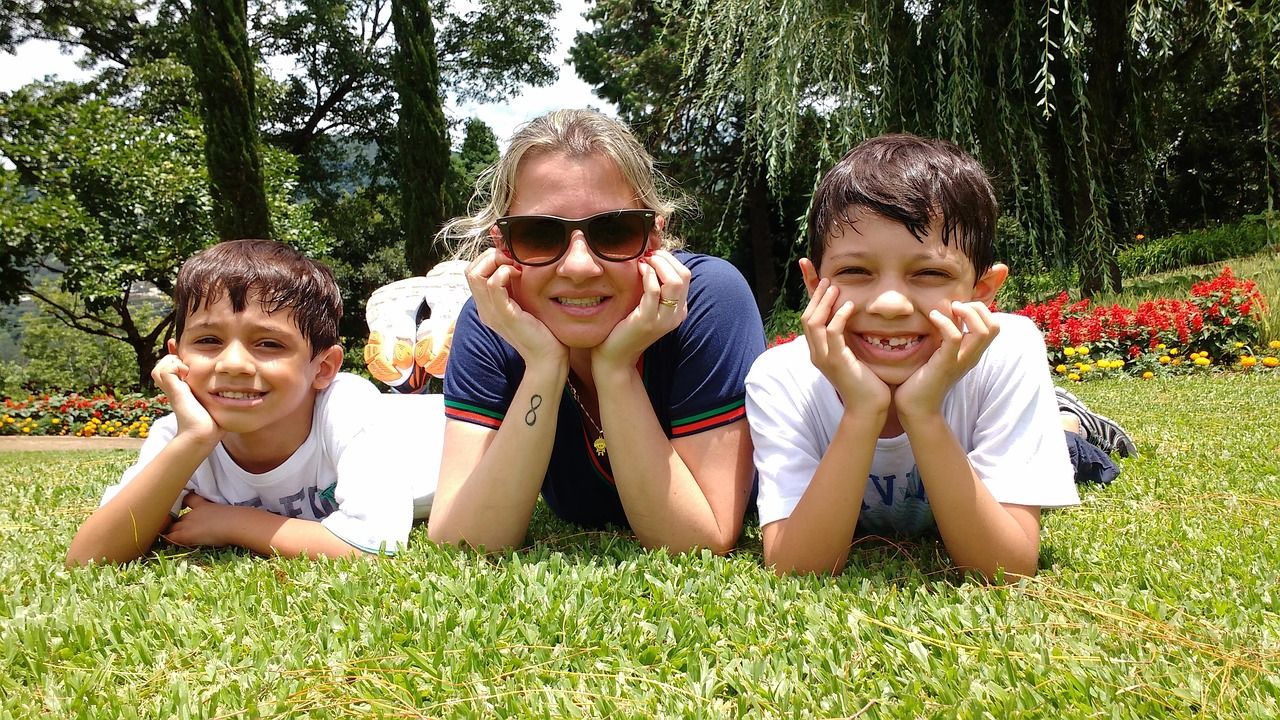Cómo educar en valores en esta época de desinformación [ESP/ENG]
Saludos amigos de @humanitas , espero que este lunes sea el inicio de una excelente semana cargada de salud y bienestar para todos.
El tema de hoy tiene que ver con la educación, pero no cualquier tipo de educación, sino la enseñanza de aquellos valores de los que tanto hemos oído hablar pero que por una u otra razón no le hemos dado la importancia que merecen.

[Pixabay](https://pixabay.com/es/photos/familia-mujer-hijos-ni%C3%B1o-amor-2149453/)
La aparición del Internet hizo que la educación diera un viraje considerable en lo que al manejo de información se refiere. Ya no hace falta ir a la biblioteca pública, alquilar un libro y sacar copias para estudiar, porque todo lo que se necesita lo tenemos en los celulares, al alcance de todos.
Sin embargo, lo que por un lado facilita las cosas, por el otro las complica. Ahora los padres deben estar bien entrenados en el manejo se las redes sociales y controlar el acceso de sus hijos a los innumerables contenidos que la web les ofrece.
Este control se ve obstaculizado por la ausencia de los padres en el hogar, ya que por razones de trabajo o de otra índole, están mucho tiempo sin contacto con los hijos y esa tarea la delegan a los abuelos, familiares y hasta a la servidumbre de la casa.

[Pixabay](https://pixabay.com/es/photos/abuela-ni%C3%B1os-computadora-port%C3%A1til-1822560/)
Algunos consejos prácticos que están dando buenos resultados para evitar la desinformación y la contaminación de las mentes inexpertas son los siguientes
* Lo primero que hay que hacer es explicarle al joven que el internet es una herramienta muy útil, pero que debe buscar con cuidado porque hay personas inescrupulosas que escriben artículos falsos o con intenciones oscuras.
* Trata siempre de estar presente en el momento en que el joven esté accediendo a la información; si esto no es posible, pregúntale cuando llegues a casa si consiguió lo que buscaba. Es importante que el niño sienta que estás interesado en su educación.
* Ayuda al joven a crear una mente analítica haciéndole preguntas o cuestionamientos sobre lo que desea buscar, para qué lo va a usar y donde debe buscarlo.
* Enséñale la importancia de conocer la procedencia o fuente de la información y cómo averiguarla. Datos del escritor, otros artículos que ha publicado o si es un profesional el que escribe.
* Recuerda siempre que los niños copian todo lo que ven y por eso debes cuidar tus acciones y tus palabras. Lo que le muestras con el ejemplo es lo que aprenden con mayor facilidad.
Lógicamente para poder tener éxito con los chicos, es indispensable practicar siempre un diálogo asertivo para ganar su confianza y sus respuestas sean favorables.
Hasta aquí esta publicación, espero encontrarnos en otra oportunidad.
Bendiciones.

* Imágenes tomadas de Pixabay
* Traductor de texto utilizado: Deepl
# How to teach values in this age of misinformation
Greetings, friends of @humanitas. I hope this Monday marks the beginning of an excellent week full of health and well-being for everyone.
Today's topic has to do with education, but not just any kind of education. Rather, it has to do with teaching those values that we have heard so much about but, for one reason or another, have not given the importance they deserve.

[Pixabay](https://pixabay.com/es/photos/familia-mujer-hijos-ni%C3%B1o-amor-2149453/)
The advent of the Internet caused education to take a considerable turn in terms of information management. It is no longer necessary to go to the public library, rent a book, and make copies to study, because everything we need is available on our cell phones, within everyone's reach.
However, what makes things easier on the one hand complicates them on the other. Now parents must be well trained in the use of social media and control their children's access to the countless content that the web offers them.
This control is hampered by the absence of parents in the home, as for work or other reasons, they spend a lot of time away from their children and delegate this task to grandparents, relatives, and even household staff.

[Pixabay](https://pixabay.com/es/photos/abuela-ni%C3%B1os-computadora-port%C3%A1til-1822560/)
Some practical tips that are proving effective in preventing misinformation and contamination of inexperienced minds are as follows
* The first thing to do is to explain to young people that the internet is a very useful tool, but that they must search carefully because there are unscrupulous people who write false articles or articles with ulterior motives.
* Always try to be present when young people are accessing information; if this is not possible, ask them when you get home if they found what they were looking for. It is important for the child to feel that you are interested in their education.
* Help young people develop an analytical mind by asking them questions about what they want to search for, what they are going to use it for, and where they should look for it.
* Teach them the importance of knowing the origin or source of the information and how to find it out. Information about the writer, other articles they have published, or whether they are a professional writer.
* Always remember that children copy everything they see, so you must be careful with your actions and words. What you show them by example is what they learn most easily.
Logically, in order to be successful with children, it is essential to always practice assertive dialogue to gain their trust and ensure that their responses are favorable.
That's all for this post. I hope to see you again soon.
Blessings.

* Images taken from Pixabay
* Text translator used: Deepl
# English Version